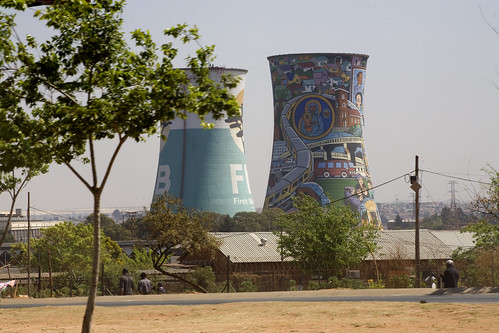
Across from this taxi rank is the largest Hospital in the southern hemisphere. The Chris Hani Bara Gwaranath Hospital provides public health care for the township and surrounding areas. It's named after Chris Hani the former president of the Communist Party who was assassinated by the apartheid regime in 1992. It sees an estimated one million patients a year and has an extensive facility that includes a large housing complex for the doctors who come from all over the world to work there.
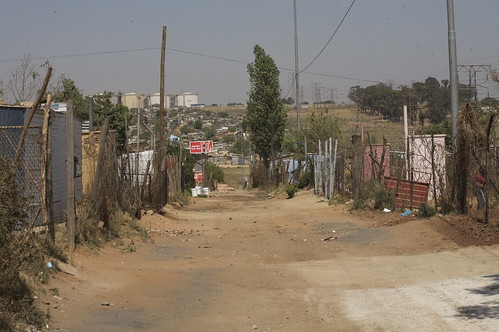
Just beyond the hospital and the old power station, we come upon an informal settlement and SonnyBoy pulls into a dirt lot where we will take a short tour inside. This is one of many informal settlements in the township. This one is named after Elias Motswaledi who was arrested with Nelson Mandela in 1963. Started in 1993, the lot where this settlement stands was once owned by a white farmer in response to growing unrest to the housing crisis. 10 million homes were planned to be completed in ten years starting in 1994 and only four million have been completed so far. Residents here have little faith this goal will be met.
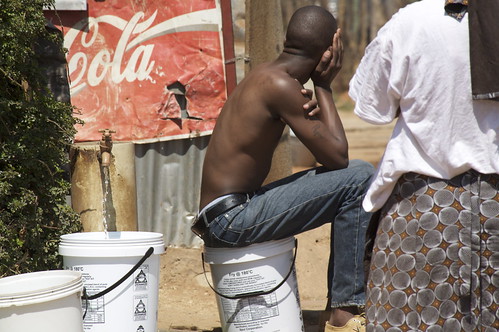
The government has done little to improve conditions here, there are 50 community water taps for the 1 250 spaces, no sewage, and no electricity. There are long drop toilets, simple holes in the ground, each serving two to three families each. Deficient infrastructure does not mean this settlement goes without regulation. Amazingly there are rules to qualify to live here; residents must make no more than 3 000 Rand a month. With rising food and fuel costs, almost 100% in the last three months, it seems almost against reason to put restrictions on those who are trying desperately to rise out poverty.
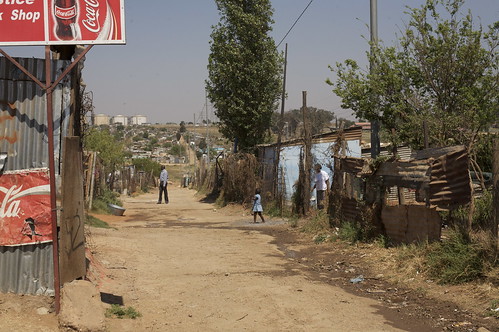
Roughly 20 000 people live here from 8 different tribes speaking as many languages. Xolisa, our resident guide, is university educated, articulate, and thoughtful. But he, like his neighbors in the settlement suffer from high unemployment, a lack of opportunities and ill-thought out government policy. Government grants for each child under 13 years of age have the expected result of increasing the burden on the community by encouraging more children.
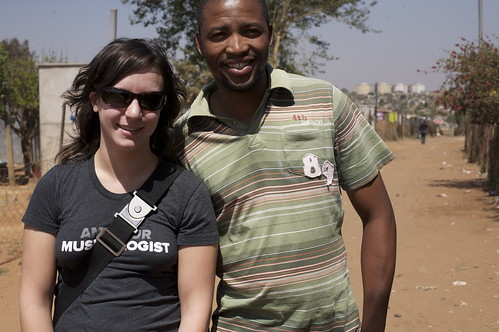
We visit the home of one of the residents, Hilda. She lives in a small single room shack. She cares for seven grand children, and at 67 is now too old to work. Our conversation lasted a few minutes, we got to ask a few questions and was asked to make a small cash donation that she immediately slid under her pillow, next to other donations from the tourists who visited her earlier in the day. She was convincingly pitiful and our short visit was among the most awkward interactions I've had with another human being in my life.
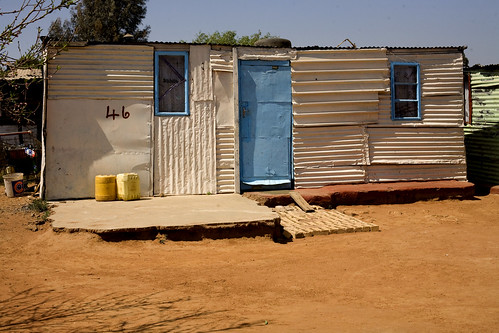
Her story was sad, but it was hard not to deny how manufactured an experience this was. Manufactured for a burgeoning tourist industry whose increasing numbers have become part of a new industry. On our way out we are given the chance to buy a souvenir. Jess and I are split up to maximize the opportunity. It also reduces our bargaining position and exposes us to a greater number of the settlement's residents. To say the least, it is an experience that is highly designed. And it works. Jess and I both end up purchasing souvenirs and making donations to the settlement. After about 15 minutes and 450 Rand, the both of us leave with tokens of our visit and an experience we won't soon forget.
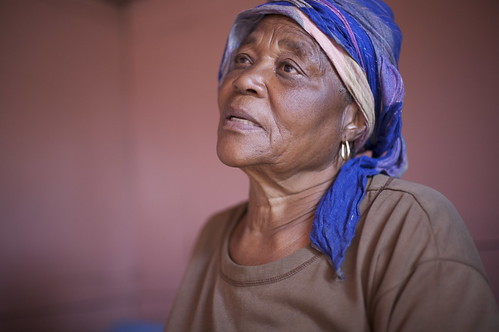


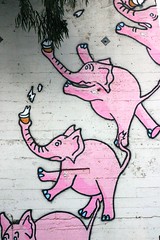

No comments:
Post a Comment